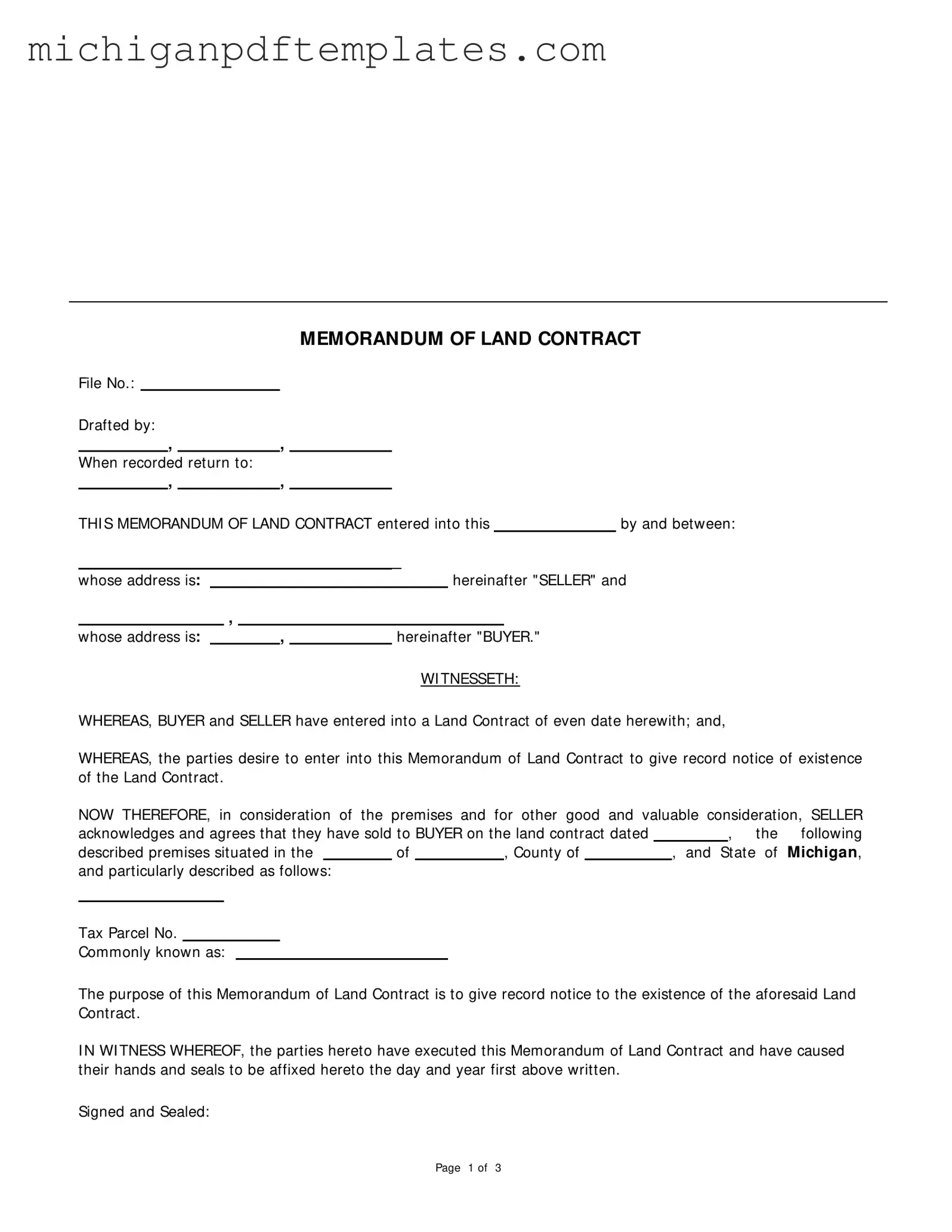Fill in Your Land Contract Michigan Form
The Land Contract Michigan form is a legal document that outlines an agreement between a seller and a buyer for the purchase of property. This form serves to provide record notice of the land contract, ensuring that both parties are aware of their rights and obligations. It is crucial to complete this form accurately to protect your interests in any real estate transaction.
To fill out the form, click the button below.
Get Your Form Now

Fill in Your Land Contract Michigan Form
Get Your Form Now

Get Your Form Now
or
▼ PDF Form
Finish this form quickly and move on
Fill in and complete Land Contract Michigan online quickly.